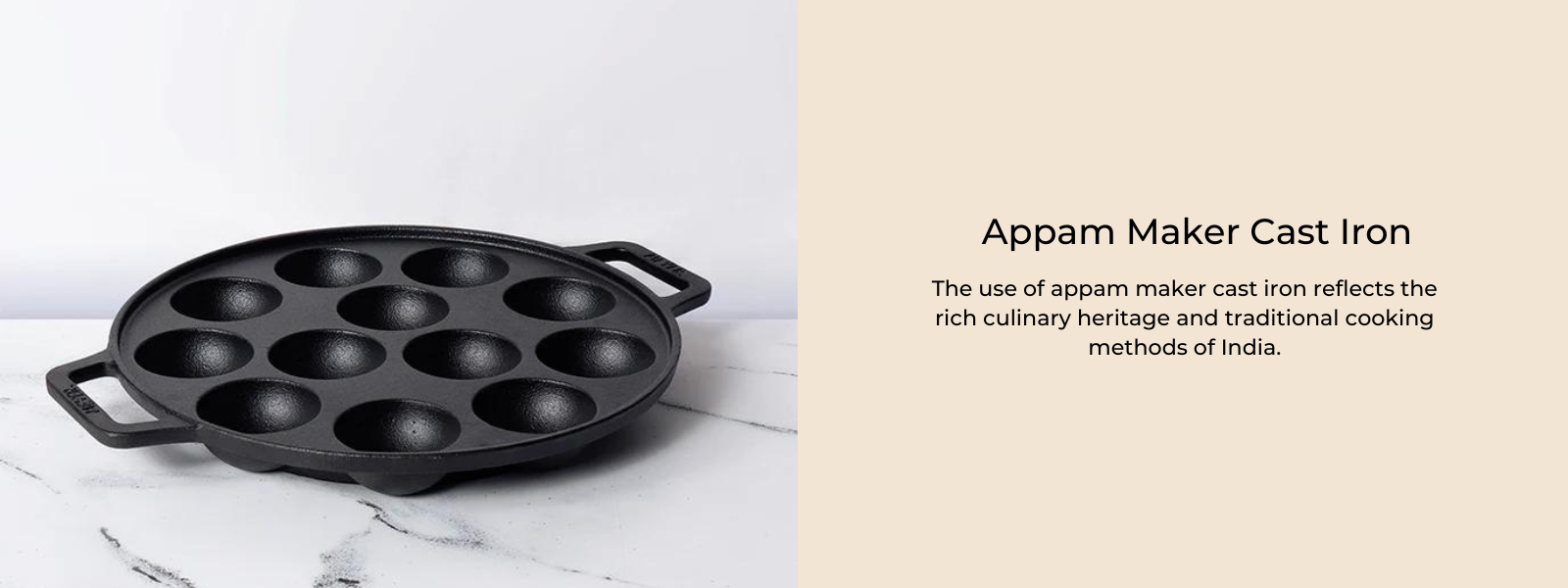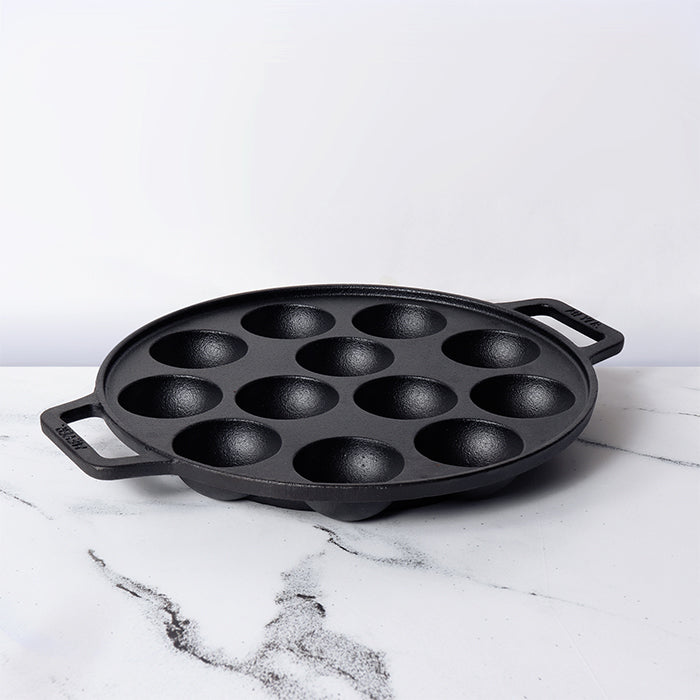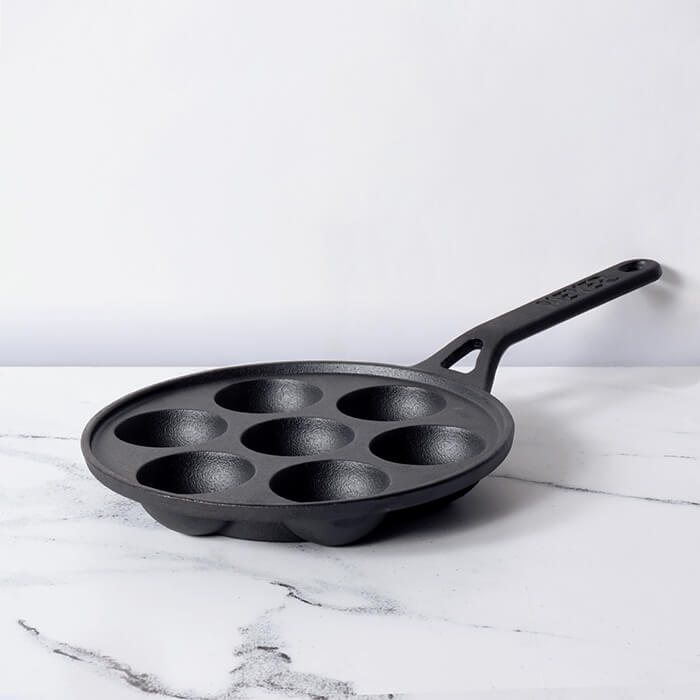Appam pans are not just tools for cooking; they symbolize the cultural and culinary heritage of South India, providing a means to create this beloved dish and connect with tradition. Therefore, if you want to prepare those palate satiating and soul satisfying appams and other authentic South Indian delicacies, you should always buy the best appam pan. And if you don’t know how to find the best appam pan, we are here to guide you!
Table of Contents
What Is An Appam Pan?
An appam pan, often a round cooking vessel with shallow, bowl-shaped depressions, is an essential piece of cookware in South Indian kitchens. Primarily crafted from materials such as cast iron, non-stick coated, or stainless steel, appam pans are designed to create the iconic South Indian dish, appam. The unique shape of the pan allows for the preparation of appams with crispy, lacy edges and a soft, fluffy center.
Appam Pan Material:
Appam pans are available in various materials, each with its own set of advantages and considerations. The choice of material often depends on your cooking preferences, dietary restrictions, and maintenance requirements.
Here are some commonly used materials for appam pans:
- Cast Iron: Cast iron appam pans are known for their superior heat retention and uniform heating. They are valued for imparting an authentic flavor to appams and other dishes. With proper seasoning and care, cast iron develops a natural non-stick surface. However, they require regular maintenance to prevent rust and maintain their seasoning.
- Non-Stick Coated: Non-stick appam pans have a non-stick coating on the cooking surface, usually made of materials like Teflon or ceramic. They are convenient for low-oil cooking and easy cleaning. Non-stick pans are user-friendly but may need replacement when the coating wears off over time.
- Stainless Steel: Stainless steel appam pans are durable, easy to clean, and resistant to staining. They are less likely to react with acidic ingredients, making them a safe choice for cooking. However, they may not have the same heat retention as cast iron.
- Anodized Aluminum: Anodized aluminum appam pans are durable and have a non-reactive surface. They are less likely to corrode and are resistant to scratches. While they provide good heat distribution, they may not have the same heat retention as cast iron.
What Are The Features Of The Best Appam Pan?
When you want to buy the best appam pan in India, consider factors like heat retention, ease of maintenance, your preferred cooking style, and budget
1. Size: Consider the size of the appam pan based on your cooking needs and kitchen space. They come in various diameters, so choose one that fits comfortably on your stovetop and allows you to make the desired number of appams at once.
2. Shape: Appam pans typically come in two shapes: flat or curved. The curved version is traditional and helps achieve the characteristic bowl-shaped appams. The flat ones are convenient for making flat appams or dosas.
3. Non-Stick vs. Traditional: Decide whether you want a non-stick appam pan for ease of use and cleaning or a traditional cast iron pan for authentic flavors and textures. Each has its advantages.
4. Brand and Quality: Research and choose a reputable brand known for producing high-quality cookware. Read reviews and consider the experiences of other users to gauge the pan's performance and durability. Meyer has designed the best appam pan in India to accentuate your cooking experience.
5. Price: Appam pans come in various price ranges. Consider your budget and how often you plan to use the pan when making your decision. You can find the best appam pan with a lucrative discount on www.potsandpans.com.
6. Maintenance: Consider the maintenance requirements of the pan. Cast iron pans, for instance, require seasoning and proper care to maintain their non-stick properties and prevent rust.
7. Heat Source Compatibility: Ensure that the appam pan you choose is compatible with your specific heat source, whether it's gas, electric, induction, or open flame.
Conclusion:
Ultimately, the best appam pan for you will align with your cooking style, preferences, and the type of appams you wish to make. Whether you opt for a traditional cast iron pan or a non-stick version, make sure to follow the manufacturer's instructions for seasoning and maintenance to get the best results from your chosen appam pan.











Leave a comment